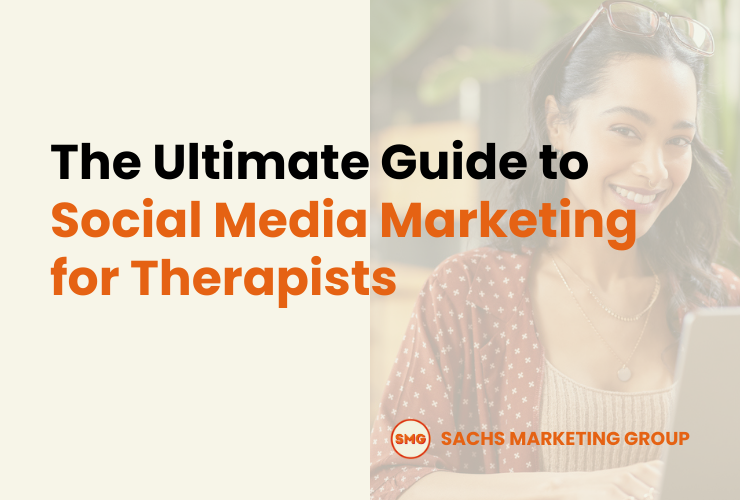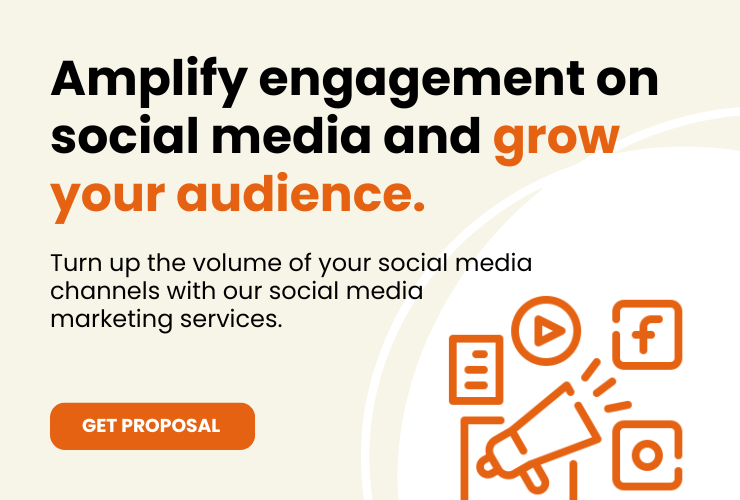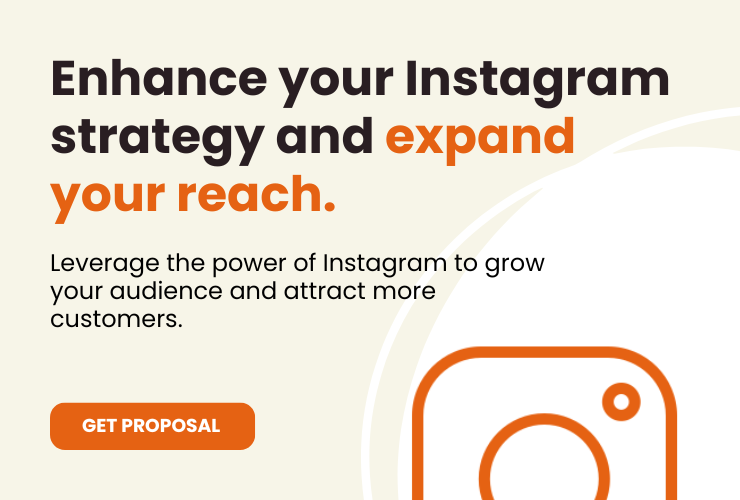Social media marketing for therapists offers a cost-effective way to build brand awareness, engage with potential clients, and establish professional credibility. It provides a platform to share valuable content that can help destigmatize mental health issues, encouraging more people to seek professional help.
Do you find it challenging to reach out to potential clients? Are you aware of the powerful impact that social media marketing can have on your therapy practice, yet feel overwhelmed by how to get started?
If so, you’re not alone. Many therapists struggle to find the time required to launch a social media marketing strategy, build their following, and take advantage of the potential reach social media has to offer.
In this ultimate guide, you will discover everything you need to know about social media marketing for therapists.
Overview
Social Media Marketing for Therapists
If you're new to the world of digital marketing, the array of social media platforms can seem overwhelming at first.
Yet, mastering social media marketing for therapists doesn't have to be a daunting task. Below, we outline a step-by-step tutorial to guide you through the process of successfully marketing your therapy practice on social media.
Here’s a step-by-step overview of social media marketing for therapists:
1. Choose the Right Platforms
When it comes to social media marketing for therapists, selecting the right platforms is crucial for targeting your desired audience. While platforms like Facebook and Instagram are more general in scope, they offer an extensive user base and are excellent for establishing a broad online presence.
For example, Instagram is fantastic for visual storytelling. By regularly posting well-curated photos or graphics with compelling captions, you can easily captivate a younger audience who might be seeking mental health services.
Some platforms offer specific benefits for professionals. LinkedIn, for instance, is ideal for networking with other therapists and mental health professionals, as well as attracting career-oriented clientele.
The choice should align with your audience's preferences and habits.
Therefore, it's crucial to research where your potential clients are most active and cater your efforts accordingly.
Understanding the demographics of each social media platform can significantly improve your marketing strategy. Don't spread yourself too thin by trying to maintain an active presence on every platform. Instead, focus on 2-3 platforms where you can regularly post high-quality content and interact with your audience.
2. Set Clear Objectives
Setting clear objectives is the backbone of any effective social media marketing strategy, including social media marketing for therapists.
Whether you're looking to increase brand awareness, engage with your audience, or drive website traffic, having specific, measurable, achievable, relevant, and time-bound (SMART) goals can guide your efforts and offer a clear roadmap to success.
For example, setting a goal like "increase website traffic from social media by 20% in the next three months" gives you a specific metric to track and a timeframe to work within.
Having objectives also makes it easier to measure the ROI of your social media activities.
By analyzing metrics that align with your goals, such as engagement rates, click-through rates, or conversion rates, you can better understand the effectiveness of your campaigns.
Remember, your objectives might evolve as you get a better sense of what resonates with your audience. It's crucial to revisit your goals periodically to adapt and fine-tune your strategy based on real-world data and insights.
3. Develop Your Content Strategy
A successful content strategy is vital for effective social media marketing for therapists. The content you post should not only engage your audience but also provide value and establish your expertise in the field of mental health.
For example, if you specialize in cognitive-behavioral therapy (CBT), creating a series of posts that explain the principles of CBT in layman's terms could attract a larger audience seeking such services.
Think of your content as a mix of promotional posts, informative articles, inspirational quotes, and interactive polls or quizzes. A content calendar can be exceptionally beneficial in organizing the types of content you'll post, ensuring a good mix that keeps your audience engaged and informed.
Don't forget to incorporate storytelling elements. Stories resonate deeply with people and can significantly improve audience engagement. Whether it's a success story from your practice (shared with permission and confidentiality, of course) or your journey into the field of therapy, a well-told story can humanize your brand and create emotional connections with potential clients.
4. Optimize Profiles
Your social media profiles serve as your digital storefront, which makes optimization crucial for anyone diving into social media marketing for therapists. Ensure that your profile picture is professional and your bio is concise yet informative, mentioning key services and areas of expertise.
For example, if you specialize in anxiety and depression, make sure those keywords are prominently featured in your bio.
Include contact information and a direct link to your website or a landing page designed to convert visitors into clients. A call-to-action, such as "Schedule a free consultation today," can encourage user action and potentially lead to new client appointments.
Profile optimization isn't a one-time task; it's an ongoing process. As you gain more followers, receive more engagement, or add new services, it's a good idea to revisit and update your profile to best represent your evolving practice. Keep it fresh and aligned with any changes in your overall marketing strategy.
5. Be Consistent
Consistency is key in social media marketing for therapists. From your posting schedule to the visual elements and tone of your content, maintaining consistency helps establish your brand and makes it easily recognizable to your audience.
For example, sticking to a color scheme that aligns with your brand’s look and feel can create a cohesive experience for anyone visiting your profile.
A consistent posting schedule is equally important. Irregular posting can result in a loss of engagement and following. You don’t have to post daily, but choose a frequency that is sustainable for you—whether that's three times a week or once a day—and stick to it.
Use scheduling tools to help maintain this consistency, especially during times when you might be too busy to manage your social media platforms.
Consistency also applies to the quality of the content you post. Posting consistently doesn't mean sacrificing quality. Take the time to develop well-researched, well-crafted posts that provide value to your audience.
Quality always trumps quantity, so focus on delivering outstanding content on a consistent basis to engage and attract your audience.
6. Engage with Your Audience
In the realm of social media marketing for therapists, audience engagement is more than just an optional extra—it’s a necessity. Interacting with your audience builds a sense of community and trust. For example, responding to a follower's comment on a post about coping mechanisms can prompt further discussion and position you as an approachable expert in your field.
Don’t just wait for users to engage with you, though. Initiate conversations by asking questions in your posts or conducting live Q&A sessions.
Audience participation can also be encouraged through interactive elements like polls, quizzes, or challenges that invite people to share their thoughts or experiences.
Remember, social media is a two-way street. While it's an excellent platform for you to share your expertise and services, it's also a chance to listen to what your audience wants. This feedback is invaluable for fine-tuning both your social media strategy and your practice.
7. Monitor and Measure
Monitoring and measuring your efforts is crucial when implementing social media marketing for therapists. Tracking key performance indicators (KPIs) aligned with your objectives can offer insights into what’s working and what needs improvement.
For instance, if your goal is to increase brand awareness, monitoring metrics like reach, impressions, and follower growth can give you a clear picture of your campaign's effectiveness.
Use analytics tools integrated into social media platforms or third-party applications to gather this data.
This quantitative analysis should be combined with a qualitative assessment, like gauging the tone of the comments and the nature of the audience engagement.
Revisit these metrics regularly and adapt your strategies accordingly. Fine-tuning your approach based on measurable outcomes ensures that your efforts aren't in vain and that you're getting the best ROI for your time and resources.
8. Run Targeted Ad Campaigns
Paid advertising can significantly augment your organic social media marketing for therapists.
By running targeted ad campaigns, you can reach a more specific audience that is likely to be interested in your services. For example, if you specialize in family therapy, you can target your ads toward users who are parents, are in a certain age range, or have shown interest in parenting blogs.
Be sure to set a budget and timeline for your campaigns, and continually monitor their performance. Platforms like Facebook and Instagram offer robust analytics that let you tweak your targeting criteria for better results.
Lastly, make sure the content in your ads aligns with your overall brand and objectives. A well-designed ad can drive significant traffic to your profile or website, but it needs to be part of a broader, consistent marketing strategy to be genuinely effective.
9. Stay Updated
Social media platforms are always evolving, and staying updated is crucial for successful social media marketing for therapists. New features like story updates, live videos, or algorithm changes can impact your marketing strategy.
For example, Instagram's shift to a more video-focused algorithm might prompt you to incorporate more video content into your strategy.
Join online forums, follow influential marketers, and subscribe to industry newsletters to keep your finger on the pulse. Being among the first to utilize a new feature or adapt to a platform change can give you a significant advantage over competitors.
Don’t hesitate to experiment with these new features and trends, but always keep your core objectives in mind. New doesn't always mean better; measure the impact of these changes on your KPIs before making any long-term adjustments to your strategy.
10. Hire a Social Media Marketing Company
If managing your social media accounts becomes overwhelming or you're not seeing the results you hoped for, consider hiring a professional social media marketing company.
Agencies like Sachs Marketing Group specialize in social media marketing for therapists, offering expertise and resources that can significantly uplift your online presence. For example, they can handle everything from content creation and posting to analytics, freeing you up to focus on your practice.
An expert team can provide a new perspective and offer solutions that you may not have considered. They'll conduct a comprehensive audit of your current strategy, identify gaps, and create a tailored plan designed to meet your specific goals and target audience.
Remember, you're an expert in mental health, not necessarily in social media marketing. Employing a professional team ensures that your online presence is in the hands of experts, allowing you to concentrate on what you do best: helping people improve their mental health.
Partner with Sachs Marketing Group
Are you finding it challenging to keep up with the ever-evolving world of social media marketing?
Sachs Marketing Group specializes in offering cutting-edge social media marketing services for therapists and other mental health professionals. With over a decade of experience, we understand the unique challenges and opportunities in your field.
Imagine having an expert team handling your social media profiles, freeing you to focus more on your clients while still expanding your online reach and influence.
Don't delay your success any longer. Reach out to Sachs Marketing Group at 818-889-3232 or visit our website to discover how we can elevate your social media marketing strategy.
Conclusion
The impact of a well-executed social media marketing strategy cannot be overstated. From selecting the right platforms and creating compelling content to monitoring results and running ad campaigns, every step contributes to establishing a strong online presence.
While you can manage these activities in-house, partnering with professionals like Sachs Marketing Group can significantly enhance your results.
Start your journey in social media marketing for therapists today, and watch your practice grow exponentially.
Get a free, no obligation review of your digital marketing strategy!
"*" indicates required fields






